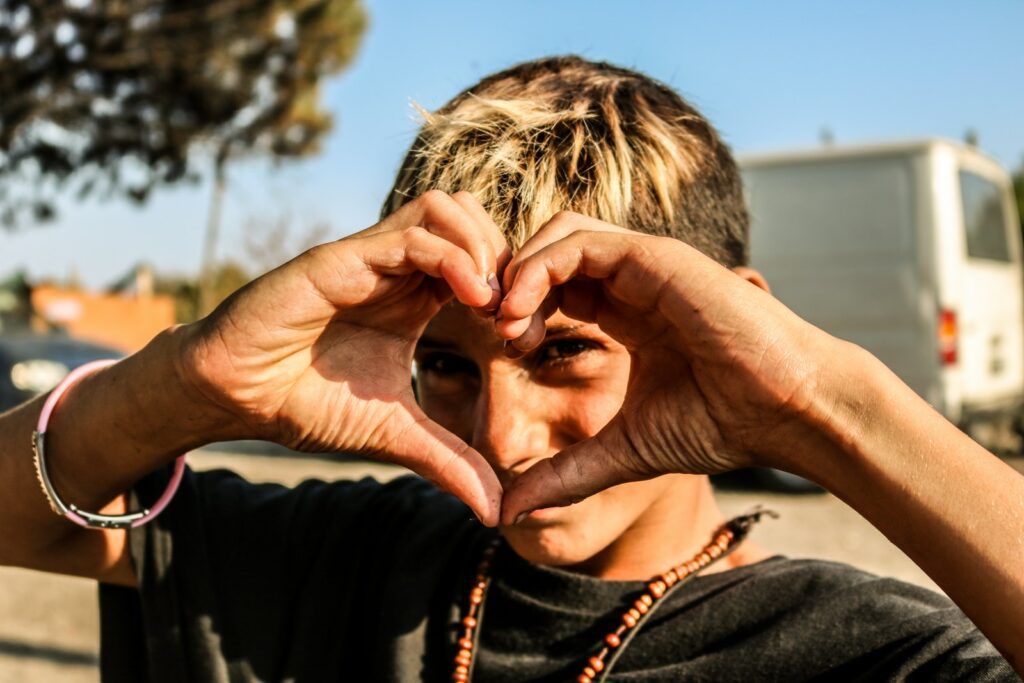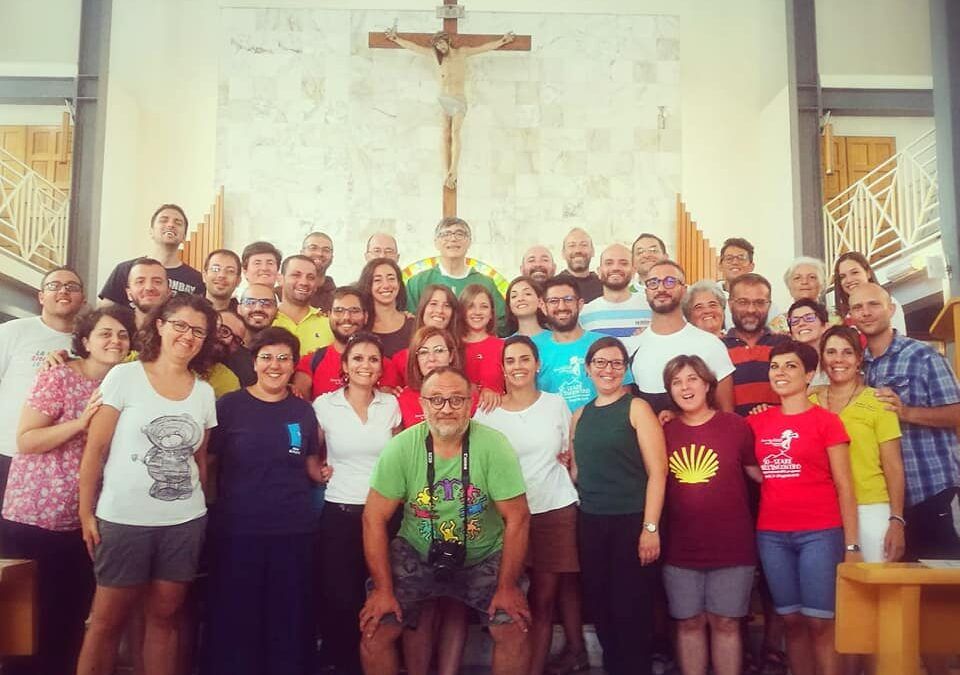Alex, three years old, lives in a gypsy camp in Giugliano in Campania, a few kilometers from Naples. Since May, water and electricity have been cut off, forcing him and the other 400 people in the camp to live in a situation of extreme poverty and marginalization. According to their stories, the institutions would refuse to recognize their presence. And there have been attempts to clear the field against their will. There have been solidarity and support for them. People like Br. Enrico, who choose to dedicate themselves to those who were in need and bring some relief into their lives, so stressful and tiring.
Alex, with his crumpled clothes and his disheveled blond tuft, disappeared among some tin shacks and then re-emerged in a rush among dust and rubble, offered me coffee and ice cubes for freshening up from the heat. What a wise and timely offer! Because we have spent the next hour playing ball and running with the other children who live in Giugliano’s gypsy camp.

I had already been to Naples in the past. I had stayed in a hotel in Chiaia, one of the most beautiful districts of Naples, just a few minutes from Piazza del Plebiscito. From the window of my room, every morning, I admired the Vomero hill and the beautiful colors of its historic buildings. I believe I have never seen so much beauty as I could see in the gypsy camp of Giugliano in Campania, in the lively eyes of Alex and the other children.
A term that the friars taught me during the experience of Justice, Peace and Integrity of Creation is “Evidently Hidden.” It is easy also for us to refuse to acknowledge the presence of the gypsy camp of Giugliano and to pretend as if the thousands of people who live in the 15-story buildings of Scampia don’t exist. The presence of all these people, remaining on the margins of society, is more than ever evident. And it is indeed a great sin not to recognize their presence because they exist right there. The presence of God and the beauty of life that He has given us was not difficult to perceive in the Ponticelli boys. They have found a form of social redemption in the families of Scampia who redeveloped the condominium garden on their initiative to give children a decent space in which to play.
It was the gift that the field of JPIC left me. And I think this experience seems to be very well summed up in the title that the friars wanted to give to this experience: “So-Stare nell’ Incontro” (having a break at the meeting). His Eminence Felice Accrocca, Archbishop of Benevento and Fr. Luigi told us about a journey that started from the meeting between Francis and the Sultan as narrated in the Franciscan Sources. We had an opportunity to reflect on different ways of coexistence, and the importance of listening for a genuine, disarmed and disarming dialogue, and how disarmed Francesco was when he appeared before the Sultan. We observed it ourselves with our own eyes, visiting Scampia, Giugliano, Ponticelli and Caivano, in the Land of Fires. We were forty of us, including youth and friars. We have shared this intense experience and immersed ourselves in the meeting.
In Caivano, we met Fr. Maurizio Patriciello, who told us about his daily commitment to tackle the serious environmental and social problems that plague the area. His words have given us a strong sense of responsibility because each of us can play an essential part in protecting Creation. We can help to defend the environment and dedicate ourselves to the people we meet as bearers of beauty. What we received in return will be something extraordinary. The part of ourselves that we will have given will be found again in the other. And the beauty that we will have brought into the world we will see again in the things that surround us. Perhaps it could be where we least expect it, among the houses of a suburban neighborhood or in the smile of a child running happily through the rubble at the edge of a road.
Andrea Sidioti
Camp participant

